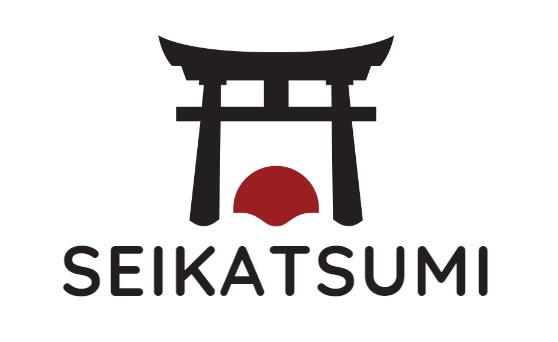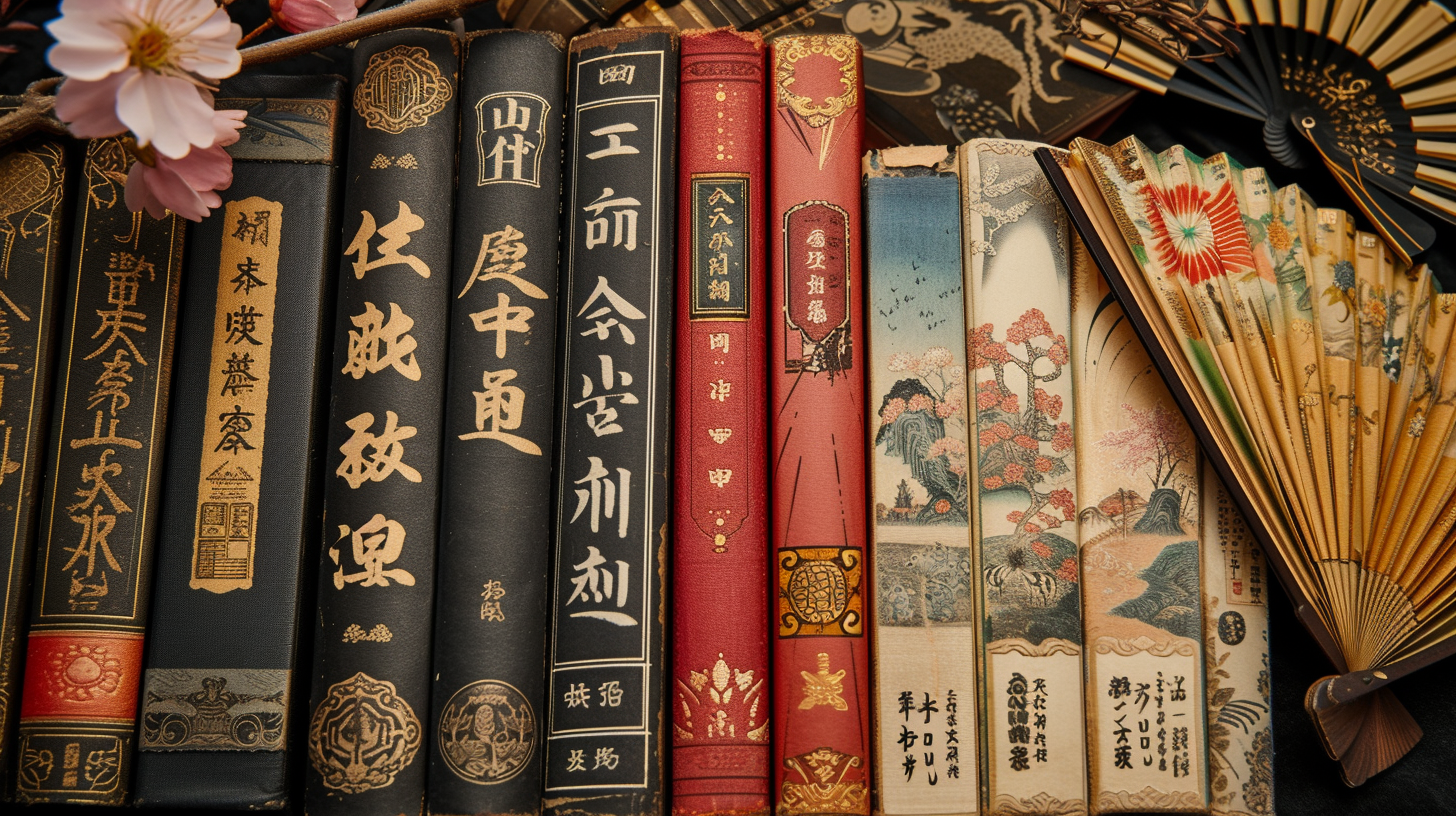Are you fascinated by the rich tapestry of Japanese history? You’re not alone in this journey!
I know the allure of delving into the depths of Japan’s past, its transformative events, and how they’ve sculpted the nation.
That’s why I’ve spent countless hours exploring, just to bring this treasure trove of knowledge to you!
So, why not embark on this enlightening journey into Japanese history? Let’s dive in and discover the best books on japanese history together! 🙂
Classics of the best books on Japanese History
As someone who loves Japanese history, I have read the best books on Japanese History.
However, some of the most fascinating works are the classics that have been studied and revered for centuries.
Here are some of the best classics of Japanese history that I highly recommend:
Heian Period Chronicles
The Heian period (794-1185) is considered one of the most culturally rich times in Japanese history. During this period, the imperial court in Kyoto flourished, and literature, poetry, and art thrived.
Some of the best books on Japanese History were written during this time, including The Tale of Genji by Murasaki Shikibu and The Pillow Book by Sei Shonagon.
One of the most important historical records of this period is the Kojiki, which chronicles the creation of Japan and its early history.
It is a fascinating read that provides insight into the beliefs and values of ancient Japan.
Edo Period Insights
The Edo period (1603-1868) is known for its relative peace and stability, as well as its isolationist policies. During this time, some of the best books on Japanese History on the samurai class were written and became more powerful, and the arts flourished.
One of the best books on Japanese History of this period is the Hagakure, a book of samurai wisdom written by Yamamoto Tsunetomo.
Another fascinating work from this period is the Tokugawa Chronicle, which chronicles the history of the Tokugawa shogunate, the ruling government of Japan during this time.
It provides insight into the political and social structures of Edo period Japan.
Meiji Era Transformations
The Meiji period (1868-1912) was a time of rapid modernization and transformation in Japan. During this time, Japan opened up to the world and underwent significant changes in its political, social, and economic structures.
One of the best books on Japanese History of this period is the Meiji Constitution, which established Japan’s first modern constitution and paved the way for its transformation into a modern nation.
Another fascinating work from this period is the Diary of a Journey to the West, which chronicles the travels of a group of Japanese diplomats to the United States and Europe in the late 19th century.
It provides insight into the challenges and opportunities that Japan faced as it sought to modernize and become a global power.
Modern Japanese History
As I delved into the history of Japan, I found the modern period to be the most fascinating. This period covers the time from the late 19th century to the present day.
It includes the post-war reconstruction, the economic miracle decades, and contemporary society and culture.
Post-War Reconstruction
After World War II, Japan was left devastated and in ruins. However, the country quickly bounced back and underwent a rapid transformation.
The post-war reconstruction period was marked by a series of reforms and policies that aimed to rebuild the country’s economy and society.
One ofthe best books on Japanese History during this period was the adoption of a new constitution in 1947. This constitution established a democratic government and guaranteed basic human rights.
It also renounced war and prohibited Japan from maintaining a military force.
Economic Miracle Decades
The economic miracle decades, also known as the “Japanese miracle,” refer to the period of rapid economic growth in Japan from the 1950s to the 1970s.
During this time, Japan became the world’s second-largest economy.
The country’s success was due to a combination of factors, including government policies, investment in technology and infrastructure, and the hard work and dedication of the Japanese people.
The period saw the rise of major Japanese corporations such as Toyota, Sony, and Honda.
Hey you! Are you interested in more tips? Then be sure to check out our top articles! You definitely can’t miss it!
Keto Japanese Food: Delicious Low-Carb Options for Sushi Lovers 2024
Japanese Sushi Essentials: The Best Guide to Enjoying Traditional Flavors 2024
Best Japanese Whiskey: Top Picks for Whiskey Enthusiasts 2024
Contemporary Society and Culture
Today, Japan is a modern and prosperous country with a unique blend of traditional and contemporary culture.
The country has made significant contributions to the worlds of technology, fashion, and entertainment.
One of the best books on Japanese History in contemporary Japanese society is the aging population.
Japan has one of the world’s highest life expectancies, and its birthrate is one of the lowest.
This demographic shift poses significant challenges for the country’s economy and social structure.
Biographies of Influential Figures
As a history enthusiast, I find biographies to be a fascinating way to learn about the past.
Here are some of the best biographies of influential figures in Japanese history:
Samurai Legends
Samurai have always been a popular subject in Japanese history and culture. For those interested in learning about the lives of these legendary warriors, “Musashi” by Eiji Yoshikawa is a must-read.
This is one of the best books on Japanese History which tells the story of Miyamoto Musashi, one of the most famous samurai in Japanese history.
His life and teachings have influenced countless martial artists and continue to inspire people around the world.
Political Leaders
Japan has had many influential political leaders throughout its history. One of the most notable is Tokugawa Ieyasu, the founder of the Tokugawa shogunate.
“Tokugawa Ieyasu: The Portrait of a Samurai” by A.L. Sadler is a great biography that provides an in-depth look at his life and legacy.
This book explores his rise to power, his political and military strategies, and his impact on Japanese history.
Cultural Icons
Japan has a rich cultural heritage that has been shaped by many iconic figures. One such figure is Murasaki Shikibu, the author of “The Tale of Genji.” This book is considered to be the world’s first novel and is a masterpiece of Japanese literature.
“The World of the Shining Prince: Court Life in Ancient Japan” by Ivan Morris is a great biography that explores the life and times of Murasaki Shikibu.
This book provides a fascinating look at the court life of ancient Japan and the cultural influences that shaped it.
Thematic Studies
When it comes to studying Japanese history, it’s important to consider the various themes that have shaped the country’s past.
Here are some of the most important thematic studies that have emerged in Japanese history scholarship:
Social Structure Evolution
One of the most fascinating aspects of Japanese history is the evolution of its social structure. From feudalism to the emergence of a modern capitalist society, Japan has undergone significant changes in the way its society is organized.
There are a number of books that explore this theme in depth, including Japan: A Modern History by James L. McClain and A Social History of Japan by Kozo Yamamura.
These works offer valuable insights into how Japan’s social structure has evolved over time, and how this evolution has impacted the country’s political and economic development.
Role of Religion
Religion has played a significant role in Japanese history, shaping everything from art and literature to politics and warfare.
Some of the most important works on this theme include Shinto: The Kami Way by Sokyo Ono and The Essence of Shinto: Japan’s Spiritual Heart by Motohisa Yamakage.
The best books on Japanese History explore the role of Shintoism, Buddhism, and other religious traditions in Japanese history, offering valuable insights into how these traditions have shaped the country’s culture and society.
Foreign Relations and Isolationism
For much of its history, Japan was a relatively isolated nation, with limited contact with the outside world. However, this changed dramatically in the 19th century, when Japan was forced to open its doors to foreign trade and diplomacy.
The resulting changes had a profound impact on Japanese society and culture, and continue to shape the country’s relationship with the rest of the world today.
Some of the most important works on this theme include Japan’s Imperial Conspiracy by David Bergamini and Embracing Defeat: Japan in the Wake of World War II by John W. Dower.
These books offer valuable insights into Japan’s relationship with the rest of the world, and how this relationship has evolved over time.
Historiography and Methodology
As I delve into the world of Japanese history, I find it essential to understand the historiography and methodology used by scholars to study this fascinating subject.
Academic Debates
In the field of Japanese history, there are several academic debates that continue to generate discussion and controversy. One of the most significant debates is the interpretation of the Meiji Restoration, which is considered by many to be the turning point in Japanese history.
Some historians argue that the Meiji Restoration was a period of modernization and progress, while others claim that it was a period of imperialism and oppression.
Another important debate is the role of the samurai in Japanese history.
Some scholars argue that the samurai were a force for stability and order, while others claim that they were a hindrance to progress and modernization.
Research Techniques
To study Japanese history, scholars use a variety of research techniques, including archival research, fieldwork, and textual analysis. Archival research involves the study of primary sources, such as government records, diaries, and letters.
Fieldwork involves the study of the physical environment, such as historical sites, temples, and shrines. Textual analysis involves the study of written documents, such as literature, poetry, and legal codes.
Evolution of Japanese Historiography
The study of Japanese history has evolved over time, reflecting changes in society and the academic community.
In the early 20th century, Japanese historians focused on the study of political and military history. In the post-World War II era, there was a shift towards social and cultural history.
Today, Japanese historians are exploring new areas of research, such as gender studies, environmental history, and the history of science and technology.
My personal favorite book
In my opinion, the best books on Japanese history are those that delve deeply into the fascinating world of the samurai. The samurai era, with its rich blend of martial prowess, strict ethical codes, and intricate social structures, is particularly captivating.
I find myself drawn to books that not only recount the historical events but also immerse the reader in the cultural and philosophical aspects of that time.
The way these warriors balanced their martial duties with artistic pursuits and the Bushido code is incredibly intriguing.
I also have a profound interest in exploring the broader spectrum of ancient Japanese culture through literature. Books that offer insights into the daily life, traditions, religious practices, and artistic achievements of Japan in different historical periods are invaluable.
They provide a comprehensive understanding of how Japan’s past has shaped its present, offering a window into the soul of this unique country.
For me, the best books on Japanese history are those that bring these elements together, weaving a rich tapestry that captures the essence of Japan’s legacy.
Frequently Asked Questions
What are the best books on Japanese History for beginners interested in Japanese history?
“A History of Japan” by R.H.P. Mason and J.G. Caiger.
Can you suggest a book focusing on Japan’s modern history?
“Embracing Defeat” by John W. Dower.
Are there any acclaimed books on ancient Japanese history?
“The Tale of Genji” by Murasaki Shikibu for a literary perspective, and “Kojiki” for historical records.
If you liked this blog article about best books on japanese history, don’t forget to follow us on Pinterest so you don’t miss any more tips.
Let us know, which of the above ist your favorite book!



Your concise and clear way of explaining things is a skill. Thanks for making this topic easy to grasp.
The personal experiences you shared added a lot of credibility and depth to your points.
You have a unique perspective that adds so much to the discussion. Really enjoyed reading this.
I must commend you on the structure of your article – it made the content very accessible and engaging.
This post not only informs but also entertains. A perfect blend of facts and humor.
The visuals and graphics you included really enhanced the article. They made the information much clearer.
This post was a breath of fresh air. It’s great to see content that’s both informative and easy to digest.
Your writing style is captivating! I was hooked from the first paragraph to the last.
This was a really engaging read. Your examples and personal anecdotes added a lot to the discussion.
What a refreshing read! Your article was not only informative but also very entertaining. Great job!
I appreciate the depth and research that went into this post. Your work is truly remarkable.
This article really changed my perspective on the subject. Thanks for the new insights!
I love how you make complex topics simple and understandable. Your writing style is engaging and inviting.
“I love how you approached the topic – very creative yet informative. Looking forward to your next post!
This is a fantastic post with a lot of useful insights. I appreciate the practical tips and advice you’ve given.
Thank you for this detailed post. I learned a lot and look forward to reading more of your articles.